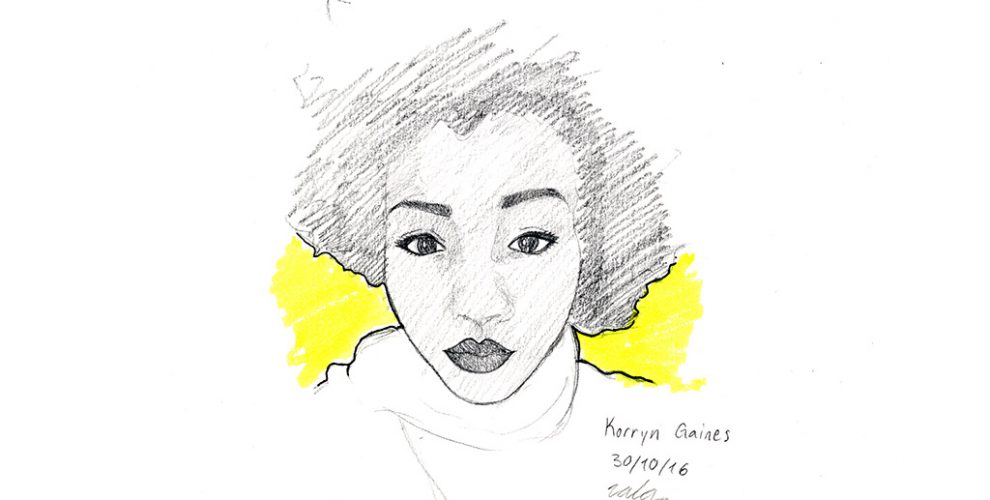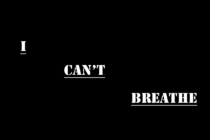Being a black person living anywhere on planet Earth, you know that cognitive dissonance, when it comes to race and insidiously manifest systemic racism, is a luxury only white people can afford.
Being a black person living through the first couple of decades of the 21st Century, it becomes obvious that the struggles of previous generations are both cyclical and protracted. On some levels, people of today are still fighting for the basics — equity, parity, liberation, civil rights, sanctity of life and quality of life. Although protest and resistance insinuates itself into our lives within the context of wave patterns, the actual reasons for dissent and resistance are always there. The feeling is Sisyphean — that nagging sensation that we are all, incessantly, pushing a massive boulder up a hidden, post-Daumal Mount Analog that we can never seem to reach the summit of because perhaps mastering the mountain is what the Broun Fellinis referred to as “chocolate surrealism”. It is a perpetual climb towards an elusive freedom and equality.
Being a black person also means knowing you don’t always fit in. “When you are born in a world you don’t fit in, it’s because you were born to help create a new one,” reads a quote posted on the Instagram account of the late Korryn Gaines, just 23 years old, who was known by the handle shesyourmajesty. Her statement “I never fit in” could be the mantra of so many black men, women and children, but she was also speaking of her own solitary journey through life’s challenges, twists and turns.
Korryn Gaines also knew about Black Girl Magic. “They gone get this Black girl magic today. Whether they want it or not,” read another meme on her page. The words, black lettering against a white background — as if printed on a virtual index card — are a solemn post facto reminder that even after her death at the hands of cops, Gaines and the ideas she embraced still resonate. Black Lives Matter. Her life…it certainly mattered. The tragic story of Korryn Gaines resonates because there is the sense that, were it not for that fateful day, August 1, 2016, she could still be here on Earth enjoying the simple things in life and being a mother to her children: her 1-year-old baby daughter Karsyn and her 5-year old son, Kodi.
Black women are “armed” with supreme intellect, nonpareil beauty, warmth, strength, indefatigability, resourcefulness, kindness, loyalty, endless creativity and wisdom.
So much has been written about Gaines, much of it conjecture, negative assessment, a display of emotionless 21st Century callousness or, worse yet, a reflection of a mob mentality which has no problem with casting aspersions on a Black woman. I tend to think of the responses to Gaines as heartless. A sign that many of us have become automatons. Robots. I personally struggled with the idea that too many people, some of whom are also Black, thought it was okay for the police to shoot this woman in her own apartment — a decision on the part of police that also resulted in Gaines’s 5-year-old son also being wounded. After all, this is the same city, Baltimore, where Freddie Gray died while in police custody. All six officers who had been charged were acquitted — they all will receive back pay. Perhaps one of those officers will receive a promotion someday, which is what sometimes happens when a police officer kills someone. Especially a Black person.
The official narrative of the Korryn Gaines story is questionable and leaves room for doubt and intense critique, as most official narratives tend to do. I read one story in which Gaines was said to have been armed with a “long gun,” which was later described as a shotgun by various media outlets. Sometimes I have wondered whether Gaines had a gun in her possession at all. After all, there are no photos of the scene nor any available video, so it is basically the word of the police against the word of a dead Black woman. “Black women were armed, black women were dangerous and the less money they had the deadlier the weapon they chose,” reads a line from Toni Morrison’s Jazz. This line can be read literally, but also figuratively, since Black women are “armed” with supreme intellect, nonpareil beauty, warmth, strength, indefatigability, resourcefulness, kindness, loyalty, endless creativity and wisdom. Much more attention is paid to the deaths of Black men and young Black boys than it is to the deaths of Black women and young Black girls, but that needs to change. Sweet Honey in the Rock’s song “State of Emergency” originally addressed the dangers of South Africa during the Apartheid years, but just the sound of the sirens makes it a theme song for many other places around the world where sirens can be heard — especially the United States. Turning to Mama Africa for wisdom, whether that is looking at beautiful fabric, listening to Miriam Makeba and Fela Kuti, listening to rumba congolaise, looking at photos of great African cities like Dakar, Lagos, Dar es Salaam and Cairo — anything having to do with Africa, really — is one way of escaping the madness of the West. The West has a way of insidiously grinding us and pulverizing us all into dust. And sometimes, we don’t even realize it.
why has the world failed to make a safe harbor or other safe space for Black women, who are arguably the most disenfranchised and misunderstood among people in the world?
And like others have stated, the story of Korryn Gaines also invokes the legacies of those who came before her. Harriet Tubman, the great 19th Century emancipator and abolitionist known for her liberation work in connection to the Underground Railroad, was another Black woman who was armed. In fact, her personal pistol and ivory-handle sword have been featured in museum exhibits. Tubman was also known to have carried a shotgun. Mabel Williams, the wife of Robert Williams, author of Negroes With Guns, also knew how to use a gun — the Williamses needed guns to defend themselves against the ruthless Ku Klux Klan, which operated above and outside the law. On the fictitious 1970s side of things, even blaxploitation heroines like Cleopatra Jones and Pam Grier’s fearless Coffy and Foxy Brown characters all carried and used guns. These days, Black women are members of the Huey P. Newton Gun Club. Often missing is the fact that Black women had to and still have to carry guns out of necessity. If Gaines actually did point a gun at cops that day — and there is no definitive proof of that — she wasn’t the first Black woman to carry a gun and she certainly will not have been the last. The question we should be asking is: why has the world failed to make a safe harbor or other safe space for Black women, who are arguably the most disenfranchised and misunderstood among people in the world?
The last known words of Korryn Gaines to her son Kodi were delivered in the form of a question. “What’s happening right now? Who’s outside? [Kodi’s answer]: The police. And what are they trying to do? [Pause] What are they trying to do? [Kodi’s answer]: They’re trying to kill us. Do you want to go out there? [Kodi’s answer, shaking his head]: No.” Those are words no mother should ever have to say to her own child. And the answers are responses no child should ever have to give to a parent. From his own hospital bed, after his mother was killed, Kodi Gaines disputed the official version of the story. There was even a video on Youtube posted by one of Korryn Gaines’s cousins in which a cousin stated neither he nor Korryn’s family were allowed to visit young Kodi in his hospital room at the time the video was recorded. The lingering question here is: why is that? What kind of obscene cruelty is that? Especially for the family of a woman who was ambushed by law enforcement over something so simple as traffic violations — something practically anyone could have.
“Black women…experiences are rarely foregrounded in popular understandings of police brutality. Yet, inclusion of Black women’s experiences … is critical to effectively combating racialized state violence for Black communities and other communities of color.”
But these kinds of tragedies and heartbreaking stories seem to be the norm these days. Just recently, Kalief Browder’s mother, Venida Browder, was laid to rest. It is said she died of a broken heart after the death of her son, who had hung himself last year after spending three years in a Rikers Island prison facility without even having been convicted of a crime.
Then there is the story of John Crawford’s girlfriend Tasha Thomas. Thomas was shopping with Crawford at a Walmart in Ohio. At one point, they became separated, and within seconds of being spotted, Crawford was gunned down on sight at the Walmart. His crime: holding a toy BB gun. When a detective interrogated Tasha Thomas later on, he waited 90 minutes to even tell her that Crawford had been killed. She cried during the interrogation, which never should have taken place. She also gave a broadcast interview while wearing sunglasses one day, but the sunglasses didn’t hide the fact that she was clearly heartbroken and distraught — still crying. And within 5 months of Crawford being killed, Tasha Thomas also died when a car she was riding in crashed on New Year’s Day 2015. There are still lingering questions about that. Her story is not as well known as Crawford’s, obviously, but it is just as important.
Kimberle Crenshaw, who co-founded and is executive director of the African American Policy Forum and is a professor of law at Columbia Law School, explains the issues facing Black women:
“Although Black women are routinely killed, raped, and beaten by the police, their experiences are rarely foregrounded in popular understandings of police brutality. Yet, inclusion of Black women’s experiences in social movements, media narratives, and policy demands around policing and police brutality is critical to effectively combating racialized state violence for Black communities and other communities of color.”
Crenshaw and several other authors created a report entitled “Say Her Name: Resisting Police Brutality Against Black Women.” There is also the #SayHerName hashtag, which appears often these days.
When Korryn Gaines was killed, some people writing in comments sections under articles about Gaines even suggested Gaines didn’t qualify for #SayHerName. Of course she qualifies. Her death could have been avoided. After all, the police, according to their own narrative, fired first.
And now two very young children have to live in this world without their mother.
words ERICKA SCHICHE
illustration VALQUENA






1 Comments
JClaire
I have been crying since I read this article. It is well written and speaks to the dangers we are facing as a society. This article must not be buried!! We must share it over and over and OVER AGAIN. Never stop telling this story.
WAKE UP PEOPLE!!